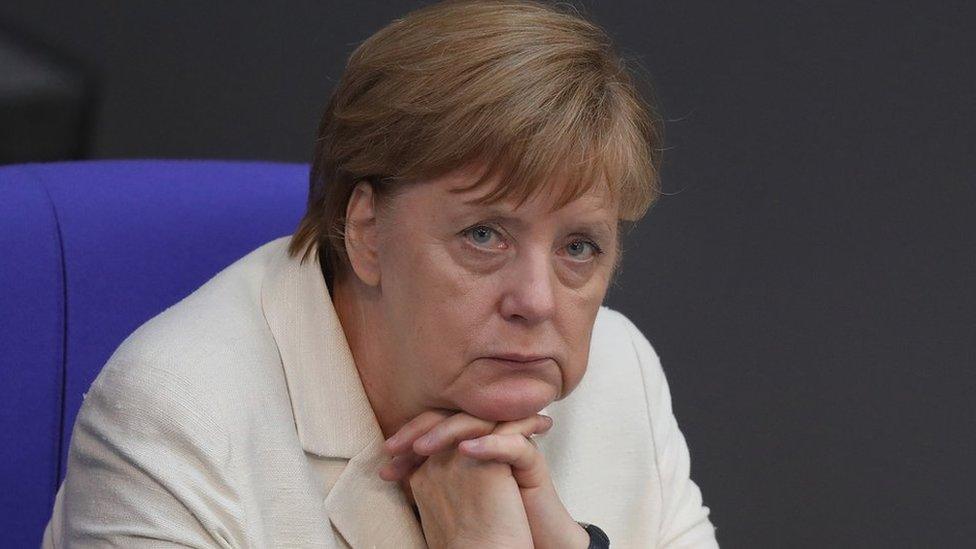Germany shivers in new wind blowing from US
- Published
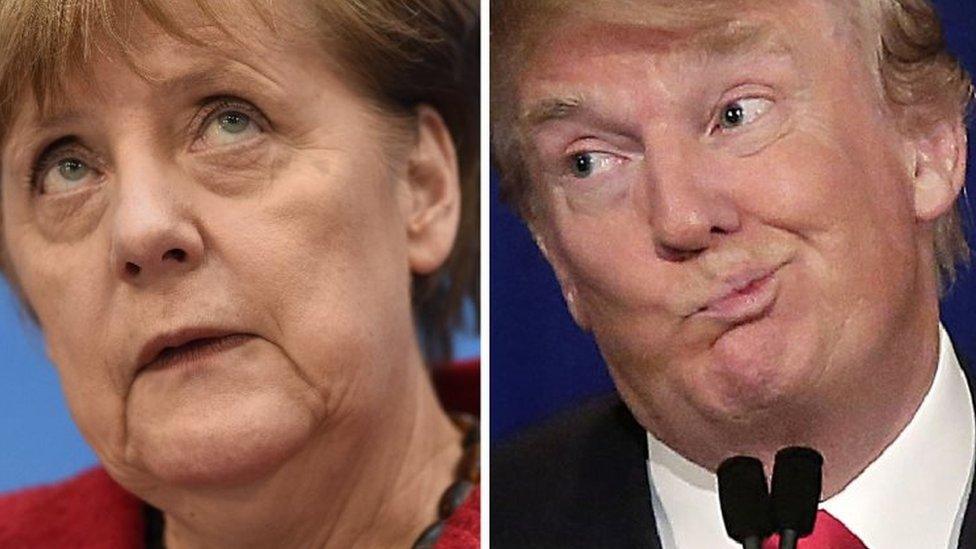
Is it possible to think of an odder couple than Angela Merkel and Donald Trump?
German politicians and civil servants are desperately trying to build and forge ties with Team Trump. It doesn't appear to be going terribly well.
The US president-elect has condemned Angela Merkel's decision to let in 890,000 migrants as a "catastrophic mistake" and dismissed the European Union as "basically a vehicle for Germany".
He has also threatened German car-maker BMW with a 35% tariff if it builds a plant in Mexico.
His remarks have provoked dismay, but not surprise, in Berlin. And it's still not clear when Chancellor Merkel will meet the new president.
For now the only certainty is that there will be no immediate reprise of the warm political alliance fostered by Mrs Merkel and Barack Obama.
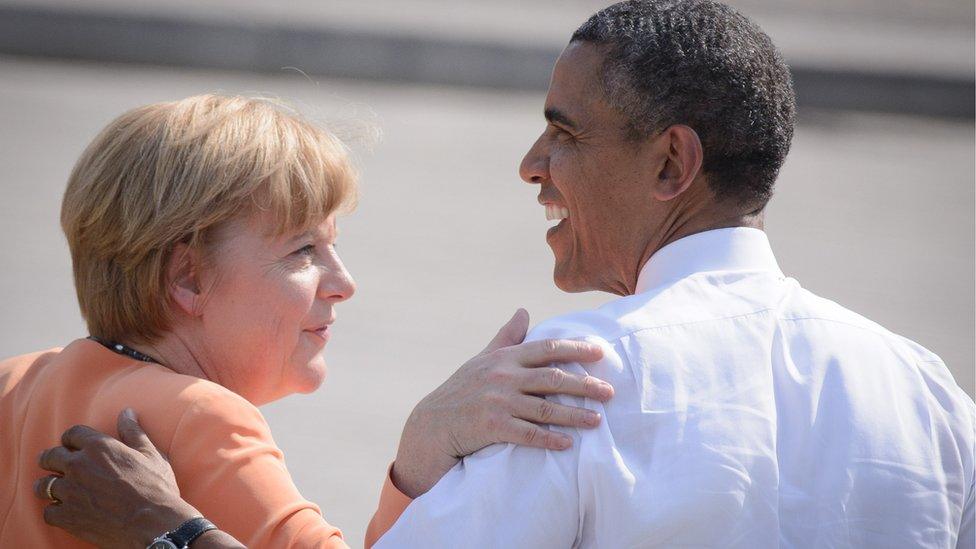
The Merkel-Obama warmth, on the other hand, has survived difficult tests
It survived the embarrassing revelation that US spies hacked into Mrs Merkel's mobile phone, and he was a vocal supporter of both the EU and her decision to open Germany's doors to hundreds of thousands of Syrian refugees in 2015.
Responding to Mr Trump's criticism, Angela Merkel was characteristically restrained.
The president-elect, she said, had laid out - again - his position. Her own views, she added, were already well known.
Vice-Chancellor Sigmar Gabriel was less diplomatic, pointing out that the migrant crisis in Europe was the result of faulty, American interventionism in the Middle East.
German warning
How the transatlantic tone has changed.
For all his German heritage, Germans have not taken to Donald Trump.
His campaign rhetoric repulsed many here. A poll for a national broadcaster in the run-up to the US presidential on 8 November election found just 4% thought he was the right candidate for the job.
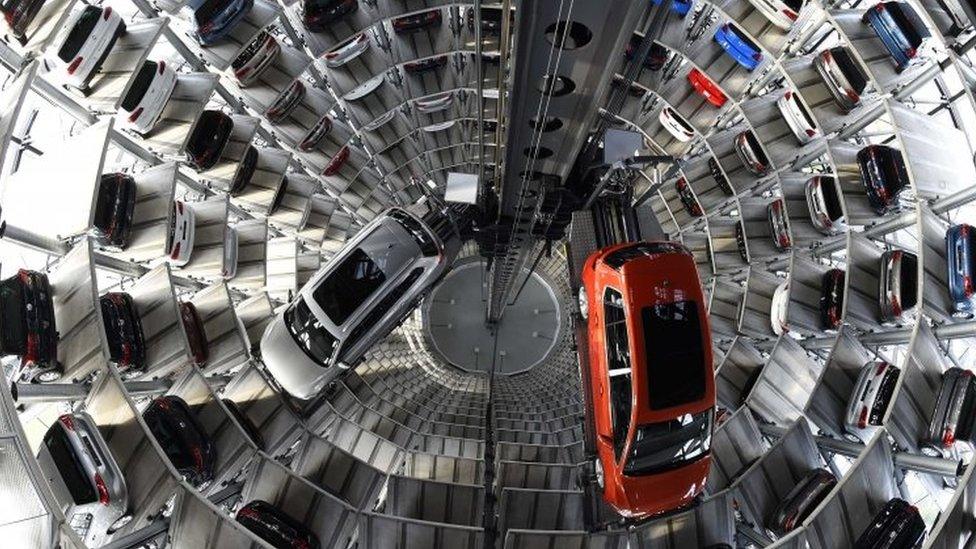
The US car market is extremely important to German manufacturers
And his approach to the German car industry is raising eyebrows.
Few here believe Congress would support his apparent and inflammatory threat to impose a 35% tax on German cars sold to the US.
To be sure the US market is important and so is the country as a location of German manufacturing plants.
But as the head of the German auto industry, Matthias Wissmann, put it last week: "The automotive industries in both the US and Germany have expressed their support for a trade agreement that has fewer non-tariff trade barriers and eliminates import duties as far as possible."
German MEP Manfred Weber was less subtle on Monday. "We can put the thumbscrews on US companies too if need be," he said.
No wonder, perhaps, one of the country's leading economists called upon the government to seek dialogue with Donald Trump.
Clemens Fuest, president of the institute for economic research, said there was a risk Mr Trump would not achieve his targets of more industrial jobs in the US and fewer imports, and that he could identify a scapegoat in the German economy and its reliance on exports.
There is an unnerving sense here that this goes beyond domestic concerns.
Rather that Germany's - Europe's - position on the world stage is shifting.
Angela Merkel's partnership with Barack Obama made for a powerful dynamic. Her role as interlocutor between Russia and the West also gave her and Germany clout.
That may all be about to change, leaving Mrs Merkel to defend - perhaps single-handedly - the integrity of an EU whose fragmentation, it appears, would be welcomed not just by Moscow but by the new US administration too.
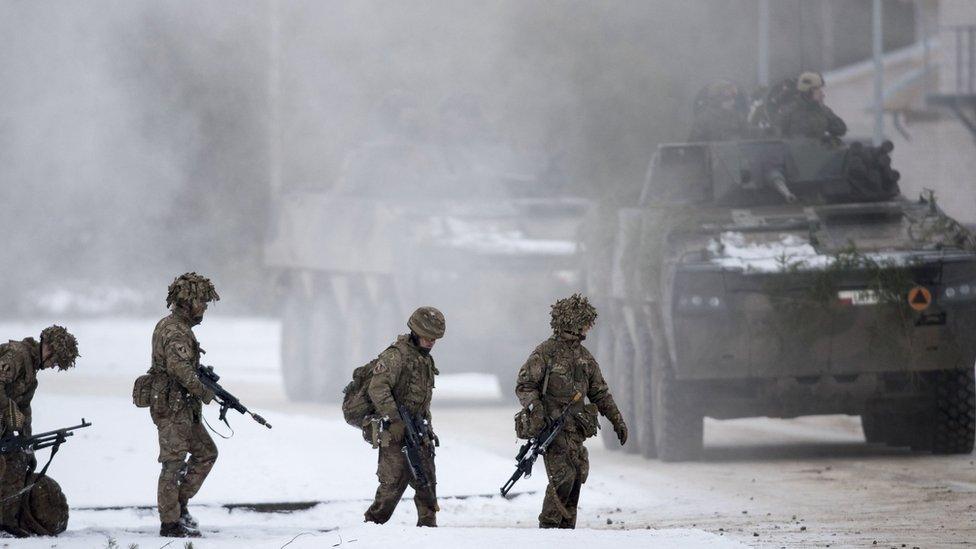
Increased Nato military exercises in Eastern Europe have alarmed Russia
So Mr Trump's disdain for Nato, which he described as "obsolete", and his apparent contempt for the EU are causing concern at the highest level - and not just in Berlin.
French Foreign Minister Jean-Marc Ayrault said that European unity was the best response to Donald Trump.
Echoing that sentiment, Mrs Merkel said that the EU must work together to tackle the common challenges of terrorism, external border controls and the digital single market.
Europe's fate, she added, lay in its own hands.
For now she and her ministers are preparing to take a pragmatic approach. She would work with the new administration and see what agreements could be made, she said.
One MP told me that politicians were adjusting, albeit reluctantly and with a degree of bewilderment, to a very different kind of partnership.
It is, after all, almost impossible to think of an odder couple than Angela Merkel and Donald Trump.
- Published16 January 2017
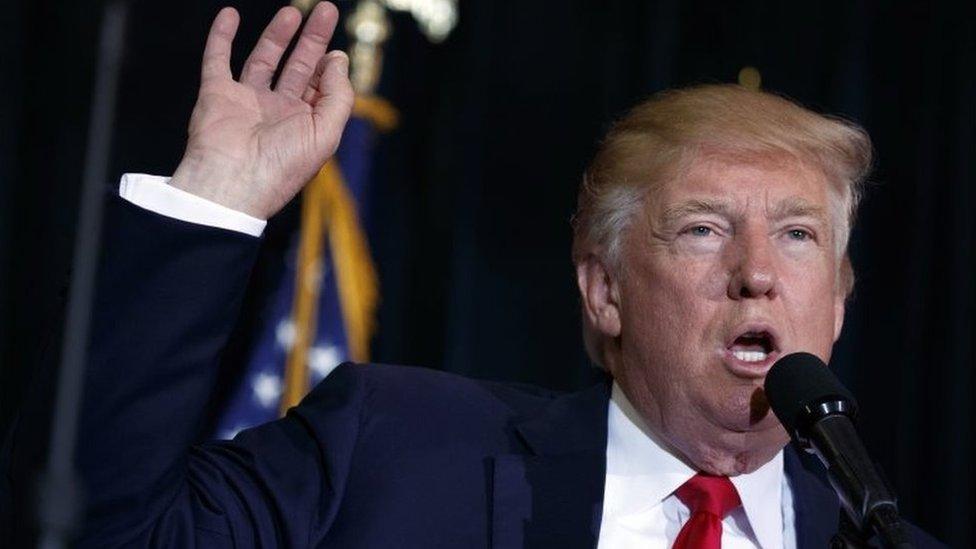
- Published17 November 2016
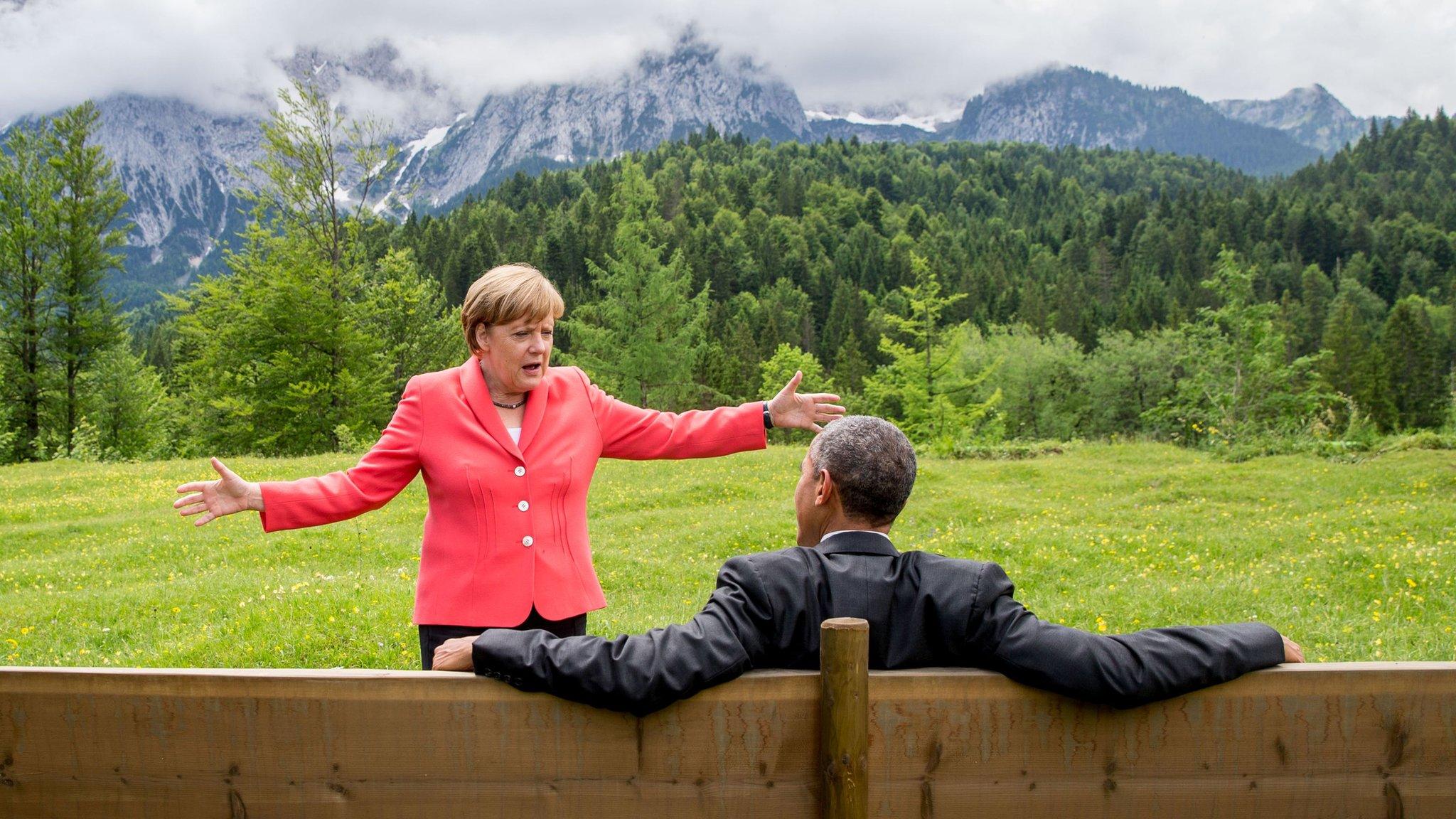
- Published16 January 2017
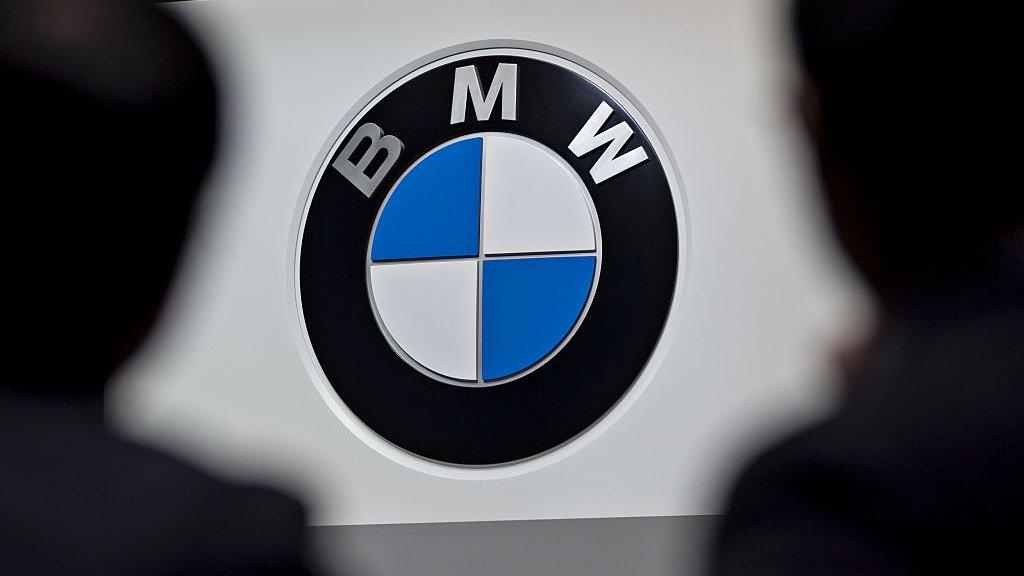
- Published12 November 2016
